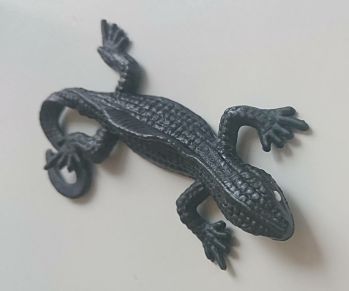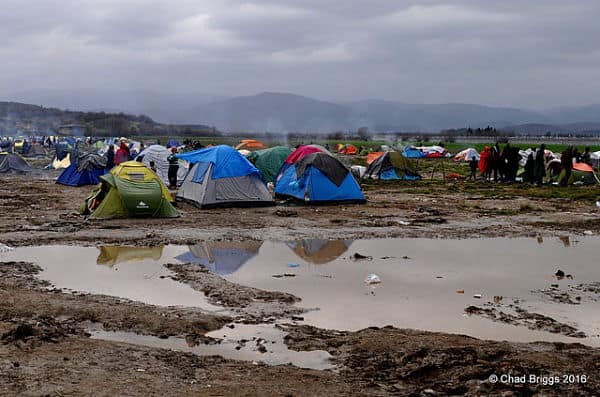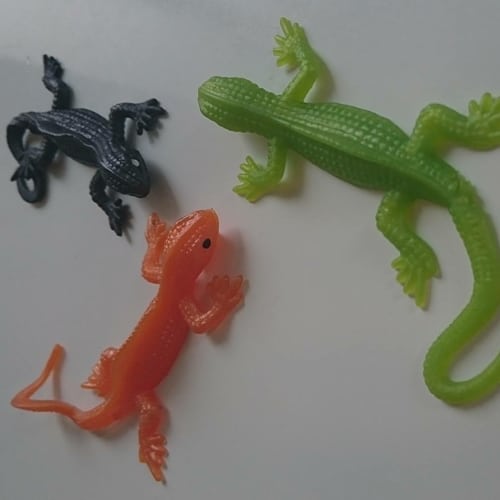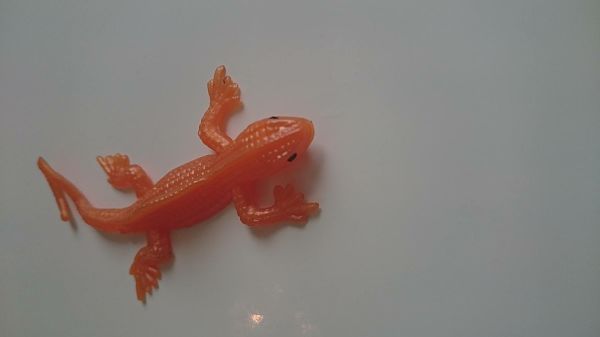Yesterday I took my two children, aged 4 and 7, to the doctor. Both had been ill for the past week; the older one was suffering from a surprisingly high fever. By the time we visited the doctor both had developed nasty sounding coughs. Yet, despite of the very real possibility that the younger one had – yet another – ear infection, I wasn’t really that concerned. Sure it was just a virus. The tests that the doctor did, costing our insurance company hundreds of euros, confirmed as much.
After their examinations both of them faced, once again, the delight of being allowed to select small toys from the basket located by the doctor’s examining desk as a reward. Mild competition broke out as they tried to figure out which of them would get the black gecko figurine as opposed to the green one.
The situation was quickly resolved as the nurse produced an ample selection to supplement the toys on display so that ‘nobody would leave with hurt feelings’.
 I departed from the doctor’s office with two happy kids – which of course soothed my motherly instincts. I know so many kids to be afraid of going to the doctor’s, fearing the examinations that they have to undergo. I was very grateful for the wonderful line-up of doctors that we had seen over the years – indeed, the number of ear infections for my younger one must be well over a dozen by now.
I departed from the doctor’s office with two happy kids – which of course soothed my motherly instincts. I know so many kids to be afraid of going to the doctor’s, fearing the examinations that they have to undergo. I was very grateful for the wonderful line-up of doctors that we had seen over the years – indeed, the number of ear infections for my younger one must be well over a dozen by now.
Simultaneously I felt utterly, desperately guilty. Guilty over our privilege to be able to call a doctor at will, to go and make sure that nothing more than a simple virus was affecting our children – guilty over the fact that they were showered with toys afterwards so as to prevent hurt feelings. The guilt of knowing that at this very moment tens, hundreds of thousands of children – perhaps even millions – are stranded in refugee camps at the southern edges of Europe as the number of people fleeing from war and a future of despair continues its explosive growth.
It is becoming increasingly difficult to read reports from European refugee camps for the sheer rage that they awaken over how people are treated. Rage over the thought that we live in a world order constituted of such inequality and wrong that people risk their lives – and those of their children – in order to try and cross an ocean for hope of a better life. Or just to stay alive.
The incredible anger upon reading how at these camps everyone is wet, cold, covered in dirt. I know that my sentiments are aggravated by the fact that I am tired – I haven’t slept a full night all week because of my kids’ coughing. I cannot imagine how long it must have been for so many parents in the camps without a proper night’s sleep. Do they even remember what it is like to sleep in a warm bed without incessant worry over the present – and the future?
It feels so awful to think of how many mothers and fathers will again today face another sleepless night while listening to their children cough in muddy tents, desperately trying to stay warm inside damp blankets covered in mould. The desperation they must be feeling upon seeing their feverish children, hungry and cold, knowing that there is nothing that they can do to make them feel better. Seeing how a runny nose turns into high fever, aggressive cough, maybe pneumonia.
How will it all end? Will we literally start seeing children dying because of neglect and political pretension that this is not happening? Is this really how we are going to prove to the world that all of those glorious phrases inscribed in our contemporary human rights instruments have meant nothing all along?
I must admit that a part of me twitched as I looked at the poster of a forthcoming event at the beautiful headquarters of the Geneva Graduate Institute. ‘Is the EU still a world leader in human rights?’, asked the well-groomed white face of the male scholar/politician in the poster.
The phrasing alone felt a bit off; human rights are not a competitive sport, after all. Yet, beyond a doubt, the reality that is unfolding around us right now – the one characterised by disheveled camps, sick children, desperate parents, barbed wires and ruthless police who treat incomers as criminals – makes losers of us all.
I feel outraged, disappointed, mortified. As of last week, more European states have closed their borders, leaving those arriving at the borders stranded in indefinite limbo. This is not the Europe that I know or want to be a part of. I feel powerless and furious because of this.
How can it be that we allow for this situation to continue while we do nothing?
I feel scared. What kind of consequences will we have to pay for our neglect? Are we seriously going to wait for epidemics of lethal diseases to break out in these camps before something is done, for real? How many children will have to die – on European soil – before politicians accept that this is the reality right now, whether they like to admit it or not?!
I dread the anger that all of this is generating at the camps – by those who are old enough to understand the big picture right now, and those who are only facing a sense of bewilderment and despair as children. How much hatred are we giving rise to via our inaction? I fear the toll that we all will have to pay. The consequences of this growing anger toward a world order that is simply unjust, wrong. To its very core. How are we going to justify all this to the future generations?
There really is no better way of summarising what’s wrong with the world than my ability to take my kids to the doctor at a moment’s notice. At the end of it, the fundamental unfairness of our world is not about an unequal division of wealth or the ability to buy the latest video games. It is about the fact that I have the ‘right’ to expect that my children will remain healthy, safe – alive – and the fact that we are depriving these very same basics of ‘the others’.
And there is nothing I can do about it. My children are the most important thing in my life – as are children in the lives of all parents. This is, I argue with no hesitation, one of those genuine universals that connects us all, yet it is something that somehow we are not recognising nearly often enough as constituting the core of our shared humanity. I have done nothing to deserve my privileges, and neither have my children. I am utterly glad that we have them – and deeply upset and guilty that we enjoy them at the expense of so many others.
This much I do know: if only I had the power, somehow, to transform these little geckos for appointments with a doctor for a sick pair of siblings suffering from aggressive colds and high fevers in one of these camps. If only I would have that power – I would be so happy to teach my children to deal with their hurt feelings caused by being offered just one choice of colour in a selection of geckos.
Where are my magic shoes to make my wish come true?







“How much hatred are we giving rise to via our inaction? I fear the toll that we all will have to pay. The consequences of this growing anger toward a world order that is simply unjust, wrong. To its very core.”
I think there’s more to say than sadness and guilt. The place to find the words may be the radical political movements that operate under theories of social justice. They have been saying the “world order” is “wrong to its very core” and have been trying to do something about it for a long time. They know there is more to say and it might be time to listen.
This was such a moving piece. The question now is how to harness our the strong emotions the refugee crisis evokes in a way that is productive and that helps us to move out of the current impasse. I wish I had answers rather than more questions.
For my full reflections see: https://ethnographyasempathy.wordpress.com